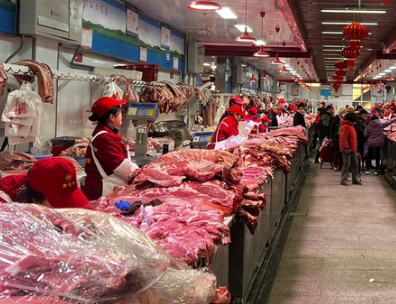The age for tit for tat has arrived, and China is learning well…
Beijing’s swift retaliation to the steep tariffs imposed by the European Union on China-made electric vehicles (EVs) has manifested in the form of an antidumping probe on European pork imports. This measure follows the EU’s recent imposition of tariffs as high as 38% on Chinese EV imports, marking a significant escalation in trade tensions between China and the EU.
China on Monday started an anti-dumping investigation into certain pork and pig by-products imported from the European Union (EU), according to the Ministry of Commerce. #XinhuaNews pic.twitter.com/yTkDmKRDy3
— China Xinhua News (@XHNews) June 17, 2024
China’s response was anticipated, with state media, such as the English-language Global Times, hinting that Chinese industries had pushed for an investigation into EU pork imports. This reaction is part of a broader pattern of trade disputes and retaliations between the two economic giants. The EU’s scrutiny of Chinese EVs began last October, examining whether Chinese vehicles benefited from unfair subsidies. Since then, the EU has expanded its investigations into other Chinese industries, including wind turbines, iron or steel products coated with Chinese tin, and medical devices.
China on Monday started an anti-dumping investigation into certain pork and pig by-products imported from the European Union (EU), according to the Ministry of Commerce. pic.twitter.com/WxgF1H4CZi
— Beijing Evening News (@BeijingEvening) June 17, 2024
In January, Beijing initiated an antidumping probe into European brandy, signaling the onset of a potential trade war with Europe. Analysts considered this move the “first bullet” in the escalating trade conflict. Not all EU member states are eager to engage in a tariff battle with China. Germany, in particular, has voiced concerns about potential retaliation and is seeking a compromise between Brussels and Beijing before the new EU tariffs take effect in July.
Facing E.V. Tariffs, China Threatens Pork Imports From Europe
Acting quickly after the European Union imposed extra tariffs of up to 38 percent on China’s electric cars, Beijing opened a trade case on Europe’s pork.#business #finance #financenews #businessnews #news pic.twitter.com/3jmLB2Zbw0
— Breaking News (@FastNews77) June 17, 2024
China’s focus on pork imports as a retaliatory measure is significant, given that it is the world’s largest pork consumer. Last year, China imported approximately $6 billion worth of pork products, with more than half coming from the EU. European countries like the Netherlands, Spain, and Denmark could suffer economically from this Chinese countermeasure. German pork exports have already faced challenges due to the outbreak of African swine fever in its hog herds in 2020, which severely impacted its ability to export to China.
Pork holds a special place in Chinese cuisine, being the country’s favorite meat. The Chinese government even maintains a strategic pork reserve to stabilize prices during shortages. Between 2018 and 2021, China experienced a significant decline in its pig population due to an epidemic of African swine fever. In response, Beijing encouraged pig farmers to increase production to meet domestic demand.
Leading EU pork exporter Spain said it was working with European Union officials to avoid damaging tariffs after Beijing said it would open an anti-dumping inquiry. #EU #China #pork #exports #supplychainhttps://t.co/Jo7xjkItyp
— European Supermarket Magazine (@esm_magazine) June 17, 2024
However, this push for expanded production may have led to an oversupply situation. Currently, China is grappling with an excess of pork, causing financial losses for some of the country’s major pork producers. This context adds a layer of complexity to Beijing’s decision to target European pork imports, potentially exacerbating an already challenging situation for the domestic pork industry.
Key Points:
i. Retaliation for Tariffs: In response to the EU’s steep tariffs on Chinese electric vehicles, China has launched an antidumping probe on European pork imports.
ii. EU Investigations: The EU began investigating Chinese EV subsidies last October and has since expanded to other industries, including wind turbines and medical devices.
iii. Germany’s Concerns: Germany, worried about economic retaliation, is seeking a compromise between Brussels and Beijing before the new EU tariffs take effect in July.
iv. China’s Pork Market: China, the world’s largest pork consumer, imports a significant amount from the EU, and targeting pork could impact economies like the Netherlands, Spain, and Denmark.
v. Oversupply Issues: China is currently dealing with an oversupply of pork, leading to financial losses for domestic producers, adding complexity to the retaliatory measures.
TL Holcomb – Reprinted with permission of Whatfinger News



